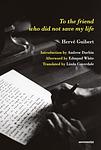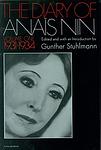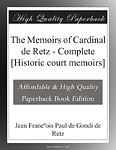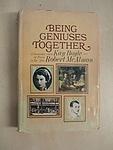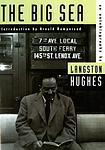The Greatest "Paris, Autobiography" Books of All Time
Click to learn how this list is calculated.
This list represents a comprehensive and trusted collection of the greatest books. Developed through a specialized algorithm, it brings together 300 'best of' book lists to form a definitive guide to the world's most acclaimed books. For those interested in how these books are chosen, additional details can be found on the rankings page.
Genres
The "Paris" category of books typically refers to literature that is set in or inspired by the city of Paris, France. These books often explore the city's rich history, culture, and landmarks, as well as the experiences of its inhabitants. The genre may include fiction, non-fiction, memoirs, and travelogues, and may cover a range of topics such as art, food, fashion, and romance. Overall, the "Paris" category offers readers a glimpse into the enchanting and iconic city that has captivated generations of writers and artists.
Autobiography is a literary genre that focuses on the life story of the author. It is a first-person account of the author's experiences, thoughts, and emotions, often including significant events and milestones that have shaped their life. Autobiographies can be written by anyone, from famous public figures to ordinary people, and can cover a wide range of topics, including personal growth, career achievements, struggles, and relationships. This genre provides readers with a unique insight into the author's life and perspective, making it a popular and engaging category of books.
Countries
Date Range
Reading Statistics
Click the button below to see how many of these books you've read!
Download
If you're interested in downloading this list as a CSV file for use in a spreadsheet application, you can easily do so by clicking the button below. Please note that to ensure a manageable file size and faster download, the CSV will include details for only the first 500 books.
Download-
1. The Confessions of Jean-Jacques Rousseau by Jean-Jacques Rousseau
"The Confessions of Jean-Jacques Rousseau" is an autobiographical work by a prominent philosopher of the Enlightenment era, who candidly shares his life story, from his humble beginnings in Geneva to his later years in exile. The book delves into his personal struggles, his intellectual journey, and his relationships, all while exploring his philosophical ideas on education, politics, and morality. The author's introspective narrative provides a unique perspective on his life and times, making it a seminal work in the history of autobiography.
-
2. The Autobiography of Alice B. Toklas by Gertrude Stein
This book is an innovative and unconventional autobiography, penned from the perspective of the author's life partner, providing an intimate view into the lives of the Parisian avant-garde in the early 20th century. It offers a personal account of their life together, filled with anecdotes of their interactions with famous figures such as Picasso, Matisse, and Hemingway. The narrative also delves into the author's own thoughts and experiences, creating a unique blend of biography, autobiography, and personal memoir.
-
3. Moveable Feast by Ernest Hemingway
This memoir offers a glimpse into the life of a young American writer living in Paris during the 1920s. The book is filled with personal anecdotes and observations about his life and experiences, including his relationships with other expatriate writers and artists of the Lost Generation. The focus is on the joy of life, the art of writing, and the struggle of a writer. The book also explores the author's love for the city of Paris, which he refers to as a "moveable feast".
-
4. History of My Life by Giacomo Casanova
"History of My Life" is an autobiography of an Italian adventurer and author, who is best remembered for his often complicated and elaborate affairs with women. The book offers a fascinating insight into his life, travels, and encounters. It provides an intimate look at the social customs and life of the 18th century, as well as the author's personal philosophies on a variety of subjects, including love, luck, and the importance of maintaining a sense of humor.
-
5. Nadja by André Breton
The novel is a surrealistic exploration of the narrator's relationship with a young woman named Nadja. As the narrator becomes infatuated with Nadja, their encounters become more and more dreamlike. The book delves into the nature of reality and the power of the subconscious mind, blurring the lines between dreams and reality. It is also a commentary on the socio-political climate of Paris in the early 20th century, showcasing the author's views on art, life, and love.
-
6. Words by Jean Paul Sartre
This book is a memoir that explores the author's early life and development as an intellectual. He reflects on his childhood experiences in a non-linear narrative, detailing his relationship with his mother and grandfather, his early education, and his evolving understanding of language and literature. The author also delves into his philosophical ideas, examining the concept of existentialism and the role of the individual in society. The book serves as a profound exploration of the power of words and the impact of childhood experiences on adult life.
-
7. Down and Out in Paris and London by George Orwell
This book is a semi-autobiographical work that explores the harsh realities of poverty in two of Europe's most renowned cities. The protagonist, a struggling writer, first experiences the squalor, hardship, and vagabond lifestyle of Paris, where he works menial jobs and often goes hungry. The narrative then shifts to London, where the protagonist lives as a tramp, navigating the oppressive rules of homeless shelters and the stigma of poverty. The book is a deeply empathetic and insightful exploration of the often invisible world of the impoverished.
-
8. Promise at Dawn by Romain Gary
"Promise at Dawn" is a semi-autobiographical novel that explores the life of a young man growing up in Eastern Europe, and later in France, under the shadow of his ambitious and eccentric mother. The protagonist's journey takes him through various phases of his life from his childhood, through his experiences as a pilot in World War II, to his adult life as a diplomat and a writer. The story is a tribute to the protagonist's mother, who instilled in him the values of courage, resilience, and the pursuit of grandeur, even in the face of adversity.
-
9. Me Talk Pretty One Day by David Sedaris
This book is a collection of humorous, autobiographical essays that explore the author's experiences and observations in his life. The first part of the book focuses on his upbringing in North Carolina, his Greek heritage, his relationship with his eccentric family, and his early jobs. The second part of the book details his move to Normandy, France, his struggle to learn the French language, and his observations of French culture. The author's self-deprecating humor and sharp wit provide a satirical view of his life's journey.
-
10. Between the World and Me by Ta-Nehisi Coates
The book is a profound work that explores the concept of race in America through the lens of the author's personal experiences. It is written as a letter to the author's teenage son, offering him a stark portrayal of his place in a society that is marked by racial injustice. The narrative provides a deeply personal analysis of American history and its lasting impact on the African American community, with the author sharing his experiences of fear, violence, and struggle. It is an exploration of the physical and psychological impacts of being black in the United States, and a call for a deeper understanding of the nation's racial history.
-
11. The World Of Yesterday by Stefan Zweig
The book is a poignant memoir reflecting on the transformative events and cultural atmosphere of Europe before World War I, through the interwar years and into the rise of the Nazis. It captures the author's experiences of growing up in a vibrant pre-war Vienna, the intellectual richness and artistic achievements of the time, as well as the profound sense of loss as the world he knew disintegrated into chaos and totalitarianism. With a mix of nostalgia and despair, the narrative serves as a lament for the lost world of European culture and as a warning about the fragility of peace and the human cost of war.
-
12. To The Friend Who Did Not Save My Life by Hervé Guibert
The book is a candid and harrowing autobiographical novel that chronicles the life of a man grappling with the devastating impact of AIDS during the early years of the epidemic. Through a blend of fact and fiction, the narrative delves into the protagonist's personal experiences with illness, the medical establishment, and the emotional complexities of friendship and mortality. As he confronts his own declining health, the protagonist reflects on the relationships with those around him, including a close friend who is also facing the disease, and the betrayal he feels when a promised miracle cure fails to materialize. The novel is a raw and poignant exploration of the human condition in the face of an unforgiving illness.
-
13. The Diary of Anais Nin, 1931-1934 by Anaïs Nin
This book is a deeply personal journal of a woman's life from 1931 to 1934, providing an intimate look into her experiences, thoughts, and emotions during this period. The author explores her relationships, her struggles with her writing, and her journey of self-discovery. The diary also captures her interactions with notable personalities of the time, giving readers a unique glimpse into the cultural and social milieu of the early 20th century. Her introspective and poetic style adds a layer of depth to her observations and reflections.
-
14. Memoirs of Cardinal De Retz by Cardinal de Retz
"Memoirs of Cardinal De Retz" is an autobiographical account of the life of a 17th century French clergyman who played a significant role in the Fronde, a series of civil wars in France. The book provides a detailed and insightful perspective on the political, religious, and social climate of the time. It chronicles the Cardinal's rise to power, his involvement in the civil wars, his relationship with key figures of the era, and his eventual imprisonment. The memoir is noted for its candid and often critical portrayal of the author's contemporaries.
-
15. Being Geniuses Together by Robert McAlmon
"Being Geniuses Together" is a memoir that offers an intimate glimpse into the lives and social milieu of the expatriate writers and artists living in Paris during the 1920s. The narrative, rich with personal anecdotes and observations, paints a vivid portrait of the bohemian lifestyle and creative ferment of the Lost Generation. The book delves into the friendships, rivalries, and collaborations among some of the era's most renowned literary figures, providing a candid and often critical perspective on the talents and personalities that defined this iconic and transformative period in literary history.
-
16. The Big Sea by Langston Hughes
"The Big Sea" is an autobiography that explores the life of a significant figure in the Harlem Renaissance. The narrative follows his early life in the Midwest, his travels around the world as a seaman, and his experiences in New York during the 1920s, where he was a central figure in the Harlem Renaissance. Throughout the book, the author offers his observations on racism, class, and the creative process, providing a vivid and insightful portrait of a complex era in American history.
-
17. Το Ταξίδι Μου by Yiannis Psycharis
This book is a seminal work in modern Greek literature, chronicling the author's transformative journey from France to his ancestral homeland of Greece. Through a series of vividly described travels across the Greek landscape, the narrative delves into the author's exploration of his cultural and linguistic roots, advocating for the demotic Greek language over the purist katharevousa. The journey is not only geographical but also deeply personal and intellectual, reflecting on the nature of Greek identity, the beauty of the Greek countryside, and the importance of connecting with one's heritage. The work has had a profound impact on the Greek language debate and is celebrated for its contribution to the shaping of modern Greek identity.
-
18. Darkness Visible by William Styron
"Darkness Visible" is a memoir that explores the author's personal struggle with depression. It provides an intimate account of his descent into a severe and debilitating state of depression, his contemplation of suicide, and eventual recovery. The book offers a candid and insightful perspective on the nature of depression, its impact on the individual, and the process of healing and recovery, shedding light on a topic often shrouded in stigma and misunderstanding.
-
19. War Diaries by Jean Paul Sartre
"War Diaries" is a collection of personal notebooks kept by the philosopher during the early years of World War II, specifically from 1939 to 1940. These diaries provide a unique insight into his thoughts and feelings during this tumultuous period, capturing his reflections on the intellectual and social climate of the time. The entries delve into his philosophical musings, everyday challenges, and his observations on the impact of the war on French society and culture. Through these diaries, readers gain an intimate understanding of the author's development of existential ideas in response to the war's unfolding events.
-
20. Renoir, My Father by Jean Renoir
"Renoir, My Father" is a captivating biography that offers an intimate glimpse into the life and work of the renowned French Impressionist painter through the eyes of his son. The book delves into the artist's personal and professional world, exploring his relationships, his struggles, and his profound influence on the art world. The narrative, rich with personal anecdotes and insights, paints a vivid portrait of a man deeply committed to his artistic vision, while also highlighting the familial bonds and the era that shaped his remarkable career. This work not only celebrates the legacy of a great painter but also provides a touching exploration of a father-son relationship.
-
21. The Hare with Amber Eyes: A Family's Century of Art and Loss by Edmund de Waal
This book is a family memoir that traces the journey of a collection of miniature Japanese sculptures, called netsuke, through generations of a wealthy Jewish family. The narrative delves into the family's rise to prominence in the late 19th and early 20th centuries, their survival during the Nazi regime, their post-war struggles, and their eventual decline. The author uses the netsuke as a lens to explore the themes of art, loss, and family legacy.
-
22. Them: A Memoir Of Parents by Francine du Plessix Gray
"Them: A Memoir of Parents" is a compelling exploration of the author's complex relationship with her glamorous and larger-than-life parents. The author delves into her mother's past as a Russian émigré and fashion icon, and her stepfather's career as a renowned magazine editor. The memoir is a study of the glittering world of mid-20th century New York, the impact of war and displacement, the power dynamics in her parents' marriage, and the author's struggle to carve out her own identity amidst these overwhelming personalities.
-
23. Memoirs Of A Dutiful Daughter by Simone de Beauvoir
"Memoirs of a Dutiful Daughter" is an autobiographical account that delves into the early years of its author, exploring her evolution from a precocious and introspective child in a bourgeois French family to a rebellious and intellectually voracious student, culminating in her formative relationships and her burgeoning identity as a writer and philosopher. The narrative captures the struggles of intellectual and personal awakening, set against the backdrop of the rigid societal expectations of early 20th-century France, and provides a deep insight into the factors that shaped one of the leading feminist and existentialist thinkers of that time.
-
24. The Memoirs Of Hector Berlioz by Hector Berlioz
"The Memoirs of Hector Berlioz" is an autobiography that provides an intimate look into the life and mind of one of the 19th century's most influential composers. The book chronicles Berlioz's passionate pursuits in music and love, detailing his struggles with the musical establishment, his fervent romantic entanglements, and his relentless drive to achieve artistic success. Through vivid anecdotes and personal reflections, Berlioz offers insights into the creation of his works and the tumultuous world of Parisian arts during his lifetime, revealing his profound impact on the Romantic era in music.
Reading Statistics
Click the button below to see how many of these books you've read!
Download
If you're interested in downloading this list as a CSV file for use in a spreadsheet application, you can easily do so by clicking the button below. Please note that to ensure a manageable file size and faster download, the CSV will include details for only the first 500 books.
Download










